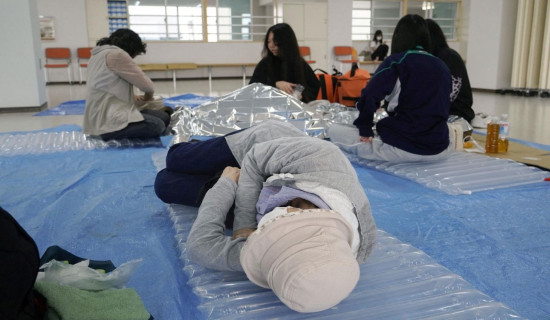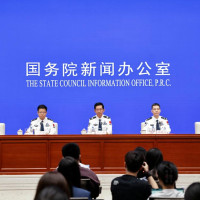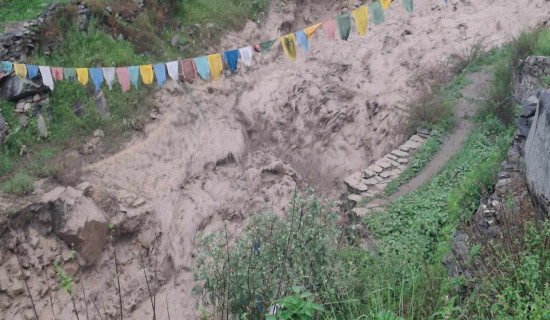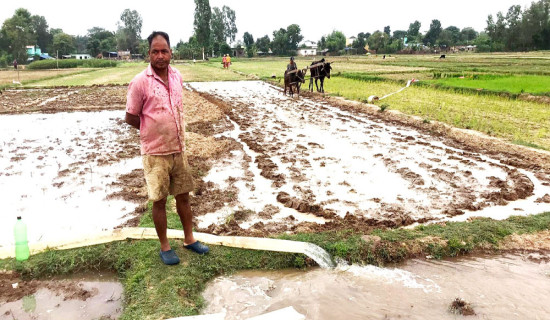- Wednesday, 30 July 2025
Ninth Power Summit to be held in September
By A Staff Reporter,Kathmandu, July 4: The 9th edition of Power Summit 2025, the flagship event of Independent Power Producers' Association, Nepal (IPPAN) is scheduled to be held on September 17-18 in Kathmandu.
The announcement was made during a press conference held on Thursday. The IPPAN leadership also shared the strategic importance of the Summit at the event.
The theme of the September Power Summit is 'Mission 28,500 MW: Powering Nepal, Energizing Region'.
With a vision of establishing Nepal as a regional powerhouse for clean energy, the Power Summit 2025 promises to be a landmark event in shaping the future of the Himalayan nation’s energy sector, said Ganesh Karki, president of IPPAN.
In the context of the government's advanced Energy Development Roadmap-2081 that aims to generate an additional 25,000 megawatts electricity within the next decade, the Power Summit, 2025, an international-level event in the energy sector is being organised in the country, said Karki.
This Summit will be organised on a grand scale under the patronage of the Ministry of Energy, Water Resources and Irrigation of Nepal, with India as the Country Partner through the Embassy of India in Nepal, and in participation of various national and international organisations, agencies, and companies.
President of IPPAN Karki emphasised the critical role of the private sector in Nepal’s energy sector development.
"The private sector has been playing an important role in the development of hydropower in Nepal since the introduction of the Electricity Act 1992 (2049 B.S.). Currently, it contributes more than 80 per cent to Nepal's total energy production," he said.
Private sector is allowed to generate energy following the establishment of multi-party democracy. Over the years, the installed capacity of Nepal has reached 3,602 MW, and of that, 2,900 MW has been generated by independent power producers (IPPs).
The favourable investment policies introduced by the government have made this possible, Karki added.
The private sector has been able to generate the power in just 25 years since the private sector entered energy production. So far, the private sector has mobilised investment exceeding Rs. 1,300 billion and is looking to invest Rs. 5,000 billion.
Nepal was able to generate only 3,600 megawatts of electricity in 114 years, since the development of the first power plant. But, now, the government has set an ambitious target to generate 28,500 megawatts by 2035. Realising that this goal is possible only through the responsibility and active participation of the private sector, this Summit is being organized on a grand scale, he said.
Power Summit 2025 is expected to draw over 1,000 participants from 30 countries, including senior government officials, diplomats, international experts, investors, financial institutions, and representatives from development agencies and private sector.
Following previous successful summits in 2006, 2007, 2008, 2012, 2013, 2016, 2019, and 2023, this year’s edition seeks to not only reinforce Nepal’s standing in the international energy community but also offer concrete recommendations for achieving net-zero goals, strengthening domestic infrastructure, and advancing regional market integration, said Ananda Chaudhary, vice-president and Coordinator, Power Summit Main Event Committee.
Distinguished attendees will include the Prime Minister of Nepal, high-level dignitaries from multiple countries, subject experts, and key stakeholders in the energy ecosystem, said the IPPAN.
The experts and stakeholders from relevant fields will engage in policy debates, share success stories and achievements, and exchange experiences, said Karki.
Experts will also deliberate on infrastructure challenges, climate change impacts, disaster risk reduction, and consumption patterns in the region.
IPPAN expects the Summit will be a place to identify Nepal as a green energy developing country by addressing regional and international concerns. These include the implementation of the Energy Roadmap, enhancing the availability of green and clean energy in Nepal and South Asian countries, promoting electricity and carbon trading, developing innovative financial instruments, ensuring energy security, and expanding regional connectivity through cross-border infrastructure development.
It will also serve as a forum to share experiences and best practices from various countries and development partners, contributing to effective policy-making in Nepal and the region.




-square-thumb.jpg)

-original-thumb.jpg)










